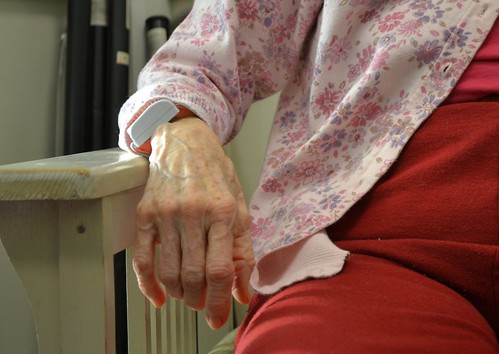Late-stage Alzheimer's Signs and Symptoms
The focus of late-stage Alzheimer's is the complete deterioration of the personality. Cognitive symptoms worsen, and physical symptoms become profound. The loss of brain cells in all parts of the brain leads to lack of functioning in all systems of the body. The wild behaviors of earlier stages disappear, replaced by a dulling of the mind and body.Cognitive and memory problems decline further, and complete dependence on others is necessary
- Doesn't recognize familiar people, including their spouse and family members (a lack of visual ability may contribute to this)
- Needs complete help with all activities of daily living
- Requires full-time care
- Appears uncomfortable, but cries out when touched or moved
- Can no longer smile
- Either doesn't speak, or speaks incoherently, with just words or phrases
- May call or cry out repetitively, or groan or mumble loudly
- Can?t write or comprehend reading material
- Can't control their movements. Muscles are rigid.
- Complete urinary and bowel incontinence
- Cannot walk, stand, sit up, or hold up their head without assistance. Falls frequently if not assisted or propped well.
- Bedridden.
- Can't swallow easily, may choke on food
- No more wandering; can't move voluntarily
- Frequent infections
- Seizures
- Loses weight
- Skin becomes thin and tears easily
- Reflexes are abnormal
- May refuse to eat or drink
- Can't respond to the environment
- May quit urinating
- Little response to touch
- Sensory organs shut down: the organs may function correctly, but the brain can't interpret the input.
- May only feel cold and discomfort
- Exhausted, sleeps more
- Apathetic, withdrawn (continues from early-stage Alzheimer's)
- Dulling of the personality
- May pat or touch things repeatedly
Please click into these links to find helpful information.
- Alzheimers care giving
- Support and care giving
- Read a nurse's perspective on Alzheimer's Disease: Click Here
Part 1 Alzheimer's and Dementia
Part 2 Early Stages of Alzheimer's
Part 3 Mid Stages of Alzheimer's


No comments:
Post a Comment